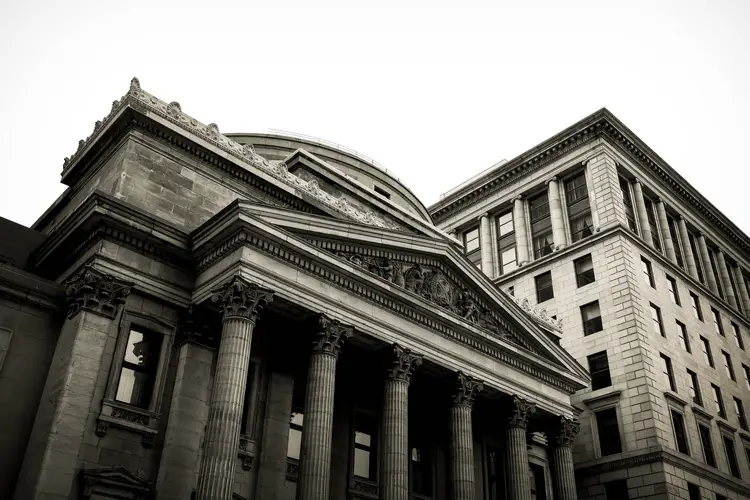
As of 2020 the average UK mortgage is £137,934 against the average house price of £227,283. This represents an average loan to value (LTV) of just under 61% (i.e. £137,934/£227,283 = 60.7%). Also, according to The Telegraph one in 10 will face negative equity if house prices fall as expected, which can stop you from selling your property.
So can you sell your house before paying off the mortgage? You can sell your house before paying off your mortgage if you sell using a lease option, which means the mortgage remains in place. If your mortgage is less than your property’s worth you’ll still receive part of your equity. But if you’re in negative equity a lease option means you can still move.
Importantly, I also cover the problem if your property is in negative equity in this article.
What happens when you sell a house before paying off the mortgage?
You won’t be able to sell your house in the conventional way before paying off your mortgage, as the mortgage lender holds a charge over the property. Until the mortgage is paid off in full, the charge cannot be lifted and therefore the house can’t be sold.
Which is why the only way to sell a house with a mortgage in place using a traditional conveyancing solicitor and a sale contract is to pay the mortgage off in full.
However, as explained above there is another way you can sell your house if you haven’t yet paid off your mortgage, or if you can’t pay your mortgage off before you sell your house.
How you sell your house before paying off the mortgage using a lease option
Firstly, a property lease option is a contract that gives the buyer a right to buy the property but without the obligation. The right to buy is for an “Agreed Period of Time” (see Step 3 below). During this agreed time period the seller is obliged to sell at an “Agreed Price” (see Step 1 below).
For the lease option contract to be legally binding there must be “Consideration” (see Step 2 below). Or in other words money must change hands between the buyer and the seller. This consideration is referred to as the option fee, which is like a deposit. Importantly for the buyer and seller, this option fee is non refundable and is what makes the contract legally binding.
You may want to read this article about are lease options legal in the UK. This article is important to read if you are considering selling with a lease option, as it also explains some of the risks of a lease option contract.
Importantly, if you are reading this article from the USA or Australia, lease options are also legal in these countries too.
How is a lease option contract different to a sale contract?
The main difference between a lease option contract and a conventional sale contract is the purchaser in a sale contract has the right and the obligation to buy the property. The purchaser’s obligation to buy is activated when the deposit is paid and contracts are exchanged.
The sale contract will include a period of time between the day of exchange to the day of completion. Completion day is the day when final monies are paid by the purchaser and ownership changes hands between the seller and the buyer.
What are the steps involved to sell your house without paying off the mortgage using a lease option
The key ingredient for any lease option to work is the deal must be a win win. All of the terms of the lease option contract are open for negotiation, and so long as the purchaser feels the contract terms are as much of a win for them, as these same terms are seen as a win for the seller, a lease option can be set in motion.
For you to fully understand how you can sell your house before paying off the mortgage using a lease option, let me explain the steps involved.
Step 1: Agree the value of your house (the “Agreed Price“)
Agreeing on the value of your house when you sell using a lease option isn’t too much different to how this is agreed when you sell in the conventional way.
However, when you sell in the conventional way you usually have an estate agent give you the asking price. But most people have an idea of what their house is worth, even before the estate agent calculates the price.
But if you don’t know what your property is worth, you have three options:
- Ask for two estate agents to view your property and provide you will a realistic asking price. This is a bit of a cheeky way to approach this, as you won’t be using them to sell your property.
- Agree to pay for a RICS surveyor to value your property*.
- Estimate the asking price yourself with the help of websites like Rightmove, Zoopla or Nethouseprices.
*Often times the RICS valuation fee is split between the buyer and seller to make this fair. In fact this is exactly what I’ve recently done for arranging a lease option on an HMO property.
However, the purchaser will help you with this step. Once you have worked out what your property is worth to you, you need to negotiate an acceptable offer you are happy to agree with the purchaser.
Step 2: Agree the option fee or deposit (the agreed “Consideration“)
When you sell a house in the conventional way, the purchaser will pay a deposit at the point contracts are exchanged. This deposit is generally accepted to be 10% of the purchase price. Which means if you sell your house for £230,000, the deposit would be £23,000 (i.e. £230,000 x 10%).
However, you may not know that the deposit doesn’t have to be 10%. The deposit can be any amount, as long as the seller and purchaser agree the amount. The minimum is £1. In law for contracts to be legally binding, consideration or money must change hands between the buyer and the seller.
The same is true for a lease option agreement. The deposit (or option fee) must be a minimum of £1. But this amount will be whatever is be agreed between the buyer and the seller. (See example, below).
The best way to explain how lease option deposits are usually agreed is by using an example. For this, let me first explain how it’s possible to negotiate how much you could achieve from the sale of your property, but in a different way.
Selling for the price of the equity vs selling for the value (or asking price) of the property
Ordinarily when people sell their property they focus on the asking price. The asking price is what the property is listed to sell for by an estate agent and on Rightmove. But this can be thought about in another way, and is best explained using an example.
How to rethink your house’s worth if you have a mortgage secured on it that’s not to be repaid immediately
Let’s say your house is worth £230,000. But your outstanding mortgage is £145,000. This means you have equity of £85,000. Then if we ignore estate agent’s commission for a moment. Plus if you were to sell your house for £15,000 under the asking price (i.e. £215,000), you would be left with £70,000 in your pocket.
So the other way to look at this transaction is to negotiate the equity instead. Which in this case is £85,000.
So if we were negotiating over the £85,000, I might suggest we pay you say £15,000 now (i.e. the deposit or the option fee). We then offer to pay the balance (i.e. £70,000) at the end of the lease option contract period. It would be at this point your mortgage is paid off in full. Which is necessary for ownership of the property to change hands.
In a nutshell, this is how the deposit is negotiated between the purchaser and the seller for a lease option contract. The final result might be the same, but this method helps both parties to focus on what’s actually owned by the vendor (i.e. the equity). However, in this example you would be better off by the estate agent’s commission and £15,000.
The reason for negotiating using this method is because the bank owns £145,000 of the property’s value. So all that’s owned by the owner is the equity, which in this case is the £85,000.
When a property is sold using a least option, at the start of the contract the mortgage is not paid off. Which means the asking price isn’t relevant.
The seller needs to decide what they need the money for and how much is required to move out
If you are the seller, you need to decide what you want the money for and how much of the equity you require to move out?
It might be you need the equity for a deposit for your next home. But it might be for something else. But for a lease option to work, it must be that you don’t need all of the equity right now. Unless the equity is a very low percentage and the purchaser is happy to pay this in full. Or if you’re in negative equity. (See below).
For the lease option to work for the buyer in this example, the deposit or option fee can’t be the full amount of the equity (or 37% in this example, i.e. £145,000/230,000 = 37%).
If it were the purchaser or investor might as well buy the house in the conventional way. But most investors only buy houses in the conventional way at a huge discount. Investors tend to work on a discount of 25% and above, which isn’t attractive for sellers (i.e. it’s not a win for the seller).
This is why lease options work so well. If the seller is happy to delay receiving the full amount of equity over the period of the lease option contract, it often means they achieve the full asking price. See below how this also works if you’re in negative equity.
Step 3: Decide on the length of the option agreement (The “Agreed Period” of Time)
Just like a conventional property sale, a lease option has a time period for the contract to run. But the time period on an lease option tends to be longer than on a conventional sale.
For this to work for the purchaser (i.e. the investor), the period of the option agreement needs to be long enough for the property value to increase. This is to allow the property to be mortgaged at an increased price in order to repay the sellers mortgage and any balance of equity owed.
The length of the “Agreed Period” will be affected by the location of the property. For example, a property in London is more likely to appreciate in value quicker than one in the north of the country. Which means the contract period can be shorter in London. But on average lease option contracts tend to be between five and ten years long. But they can and are often even longer.
At the end of the option agreement, ownership of the property changes hands in the conventional way. As already explained, it’s at this point when the seller’s mortgage is paid off in full. This allows title of the property to pass to the purchaser.
How lease options work with negative equity when selling your house before paying off the mortgage
The reason why you’re in negative equity may not be on account of your mortgage. It might be you have other outstanding loans secured on the property.
The elements of the lease option would be the similar, but the amounts might be different. But once again, this is best explained by way of an example.
- Value of the house – £230,000.
- Outstanding mortgage – £207,000.
- Other loans secured on the property – £35,000.
- Negative equity – £15,450, which is after deducting estate agent’s commission of 1.5%, and amounts to £3,450. (i.e. £230,000 – £207,000 – £35,000 – £3,450 = £15,450).
The buyer and seller need to agree a final sale price of £239,000 (i.e. £207,000 + 35,000 = £239,000). But the Agreed Price isn’t paid now. Instead it is paid in say 10 years from today. This time period is to allow the property to increase in value
Let’s say the buyer needs £2,500 to move out. Which is for a deposit on a rental property and the first month’s rent. It can therefore be agreed for a deposit or option fee to be paid as £2,500.
Points to note when you sell using a lease option in order to sell without paying your mortgage off
There are a number of points that must be considered before a lease option can be put in place. These include the following:
- The purchaser of the property using a lease option will probably want to let the house or flat to tenants. But for this to work for the buyer, the rent must more than cover the outgoings for the property. These outgoings include all mortgage and loan repayments, which are paid by the purchaser as part of the contract.
- The ongoing repairs (except for structural repairs) are the responsibility of the purchaser.
- If the mortgage is not a buy to let mortgage, the terms of the letting agreement must be agreed by lender. Otherwise the seller would be breaching the terms of their mortgage.
- The buyer can exercise their right to buy at any point during the period of the lease option. But at the point when the option is exercised the mortgage must be repaid in full.
Can you sell your house before paying off the fixed term mortgage?
You can sell your house during the fixed term mortgage. But if you don’t want to suffer the early repayment charge when you sell, you should consider a lease option sale.
As already explained, the mortgage is not paid off at the beginning of the lease option agreement. The mortgage is paid off at the time the option is exercised by the buyer. If you have a fixed term mortgage and need to sell, you can agree an option term that is longer than the period left on the early repayment charge period.
This arrangement works well for sellers who must sell and need to move for work or they are moving abroad. But would otherwise suffer the early repayment charge.
What happens if you sell your house for less than you owe?
If you sell your house for less than you owe, you will need to make good the shortfall before the sale can go through. This happens if the house is in negative equity.
Which means the outstanding mortgage is higher than what the house is worth. You might like to read these 7 solutions if you have negative equity. Included in the article is a section on how to find out if you’re in negative equity too.
Conclusion to how you can sell your house before paying off the mortgage
The important message I want you to leave with from reading this article is how flexible lease option contracts can be.
Every element to a lease option is up for negotiation. Lease options are a speciality of mine, and if you want to discover how you might be able to sell your house before paying off the mortgage using a lease option, please use the contact us page.
You may also want to read this article about how an assisted sale works. You may be interested to learn how these agreements may result in you achieving a premium above current market value.
I hope you’ve got something from reading this article about can you sell your house before paying off the mortgage
If you’ve got something from this article on “can you sell your house before paying off the mortgage” please share it on your favourite social media site.
Also, if you have any questions, please feel free to comment below too. Alternatively, if you need more help, please feel free to contact us on our contact us page here. Or join the discussion and ask your question in the property forum.




